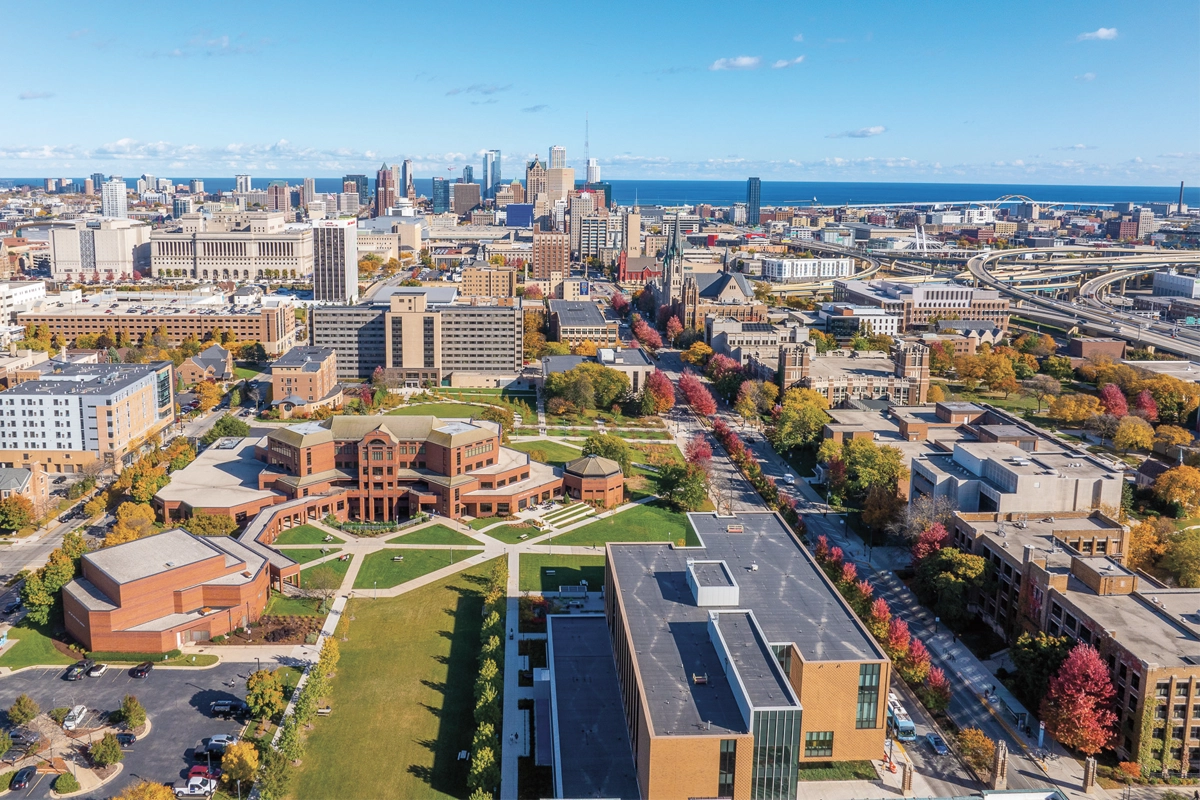Put your curiosity to work for the urgent needs of our planet. In this interdisciplinary program, you’ll experience the natural sciences, data management and analysis, hands-on field and laboratory courses, internships and laboratory research experiences, and a capstone seminar, which together deliver a strong theoretical underpinning of environmental science. And at Marquette, you’ll be among a community that values innovation, collaboration — and doing the right thing.
Marquette's environmental science major combines all this with rigorous training in experimental design and field techniques, as well as sociological causes of climate change, so you're ready to confront the challenges of environmental issues. When you graduate, you’ll have a deep understanding of the world, be ready to tackle today’s most pressing environmental issues, and know how to make lasting positive change.

Marquette Hall, College of Arts and Sciences
The ability to make significant positive change in the world requires knowing more than one area well. And since our College of Arts and Sciences is the most academically diverse college on campus, we're the perfect place to prepare for your role as a changemaker. So broaden your expertise by adding at least one additional major or minor to your degree — 73% of our students do.
Most of our graduates go on to graduate and professional schools such as University of Wisconsin–Madison, Purdue and Marquette. For our graduates who head directly into the workforce, here’s where some of our recent graduates landed:

While you’re here at Marquette, preparing you for what’s next will be one of our top priorities. So, expect lots of learning by doing, connecting with others who share your passions, and reflecting on how you can Be The Difference.
As an environmental science major, you'll have lots of career options. Explore the direction you'll take — and get valuable professional experience — with an internship. Internships can include working in a variety of professional settings, such as environmental and conservation organizations; education, government and nonprofit scientific policy and advocacy organizations. Our internship program is here to help you find the best option for you.
Here are a few intern positions our students recently held:
Here, you'll have the opportunity to work in a research lab — on your own projects — under the guidance of your faculty mentor. And you can present your findings at regional or national conferences.
Become a people-centered leader guided by our Jesuit tradition. Join our E-Lead program sophomore year and you’ll complete a combination of leadership courses and experiences that prepare you to be the driver of innovation for the common good. You’ll develop the skill set to generate innovative solutions and the mindset to reflect on the impact your work has on the world. Bonus: You’ll graduate with a concentration in leadership, too.
Expand your environmental science education with a semester abroad. Study program course work at prestigious universities around the world. Other international opportunities are available for environmental science students through core courses, summer study, language study, faculty-led programs or research.
A Marquette education equips students to thrive professionally and personally through overall student support, career preparation and an extended family that can't wait to meet you. But don't just take our word for it.
Zippia.com
Wall Street Journal
The Princeton Review (private universities)
